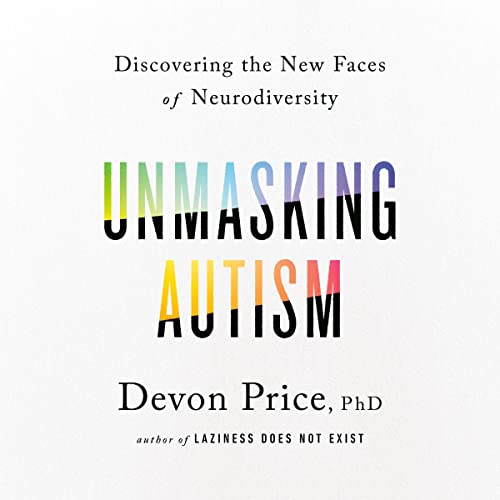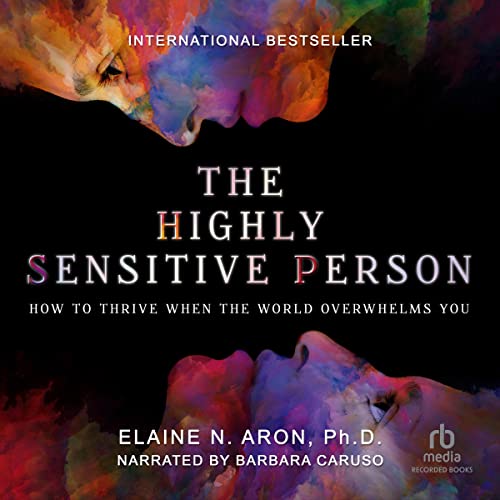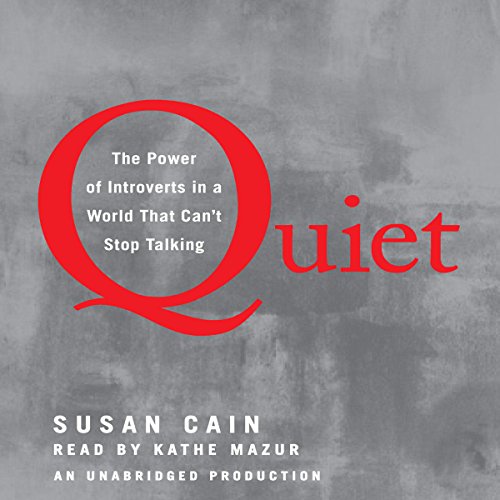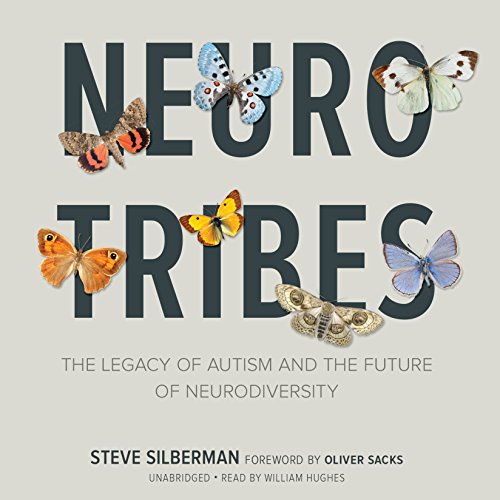“Most of us are trying to live an authentic life. Deep down, we want to take off our game face and be real and imperfect.”
Brene Brown
What does it mean to be neurodivergent? Neurodivergence has become more of a buzz word in recent days, if we can count my social media feed as evidence. I’m still developing a relationship with this word and wrapping my mind around it all.
I always felt like something was a little different about myself, I guess. I grew up as a “gifted” kid, so that explained a lot of things early on. My schoolteachers would give me different assignments than the rest of the class–things that were more advanced or creative–up until I was in the 5th grade. Then I learned about introversion and the Myers-Briggs personality test, and I recognized that my INFJ type was the most rare. Maybe that’s it, I thought. I continued excelling academically in college as a part of the honors program. I had stable groups of long-term friends, but admittedly, I was probably the most introverted everywhere I went.
When I got married, my husband noticed that I was really sensitive to noises, and lights, and textures and crowds and lots of other things. Oh, well I’m a Highly Sensitive Person. Wow…This explains so much about me! Working full-time, I had to spend every second of the weekend trying to charge my batteries enough to make it through the following week, and I didn’t even have kids yet. What’s wrong with me? I wondered.
When I had kids, I found that it was very difficult for me to divide my attention between my job and my family. How do moms do this? Even working part-time was too much. I had always been a super high achiever, a perfectionist. Now, the balls are starting to drop. When I had my second child, that was it. My brain’s capacity was officially overloaded. The days of being proactive and productive and perfect were over. It was survival at this point.
Fast forward several years, and while seeing Therapist #1, I slowly began realizing that I had unhealed trauma in my past which I eventually learned was C-PTSD. And to me, that explained so much about the anxiety, depression, and hypervigilance. But there was still this other component… Is it giftedness? I read the books about having a Rainforest Mind, and while it totally described me, I needed something more concrete. I read about Dabrowski’s Overexcitabilities–that absolutely describes me too. I’m definitely Highly Sensitive… maybe it’s a sensory disorder of some kind? But I also frequently feel an intellectual disconnect from people. And it feels lonely, quite honestly.
I began having Neurodivergent content and memes appearing in my social media feed. And the facts and quotes and jokes about ADHD and autism actually sounded pretty familiar, both for me and for some of my family members. I had no idea that ADHD and autism were closely connected. And the “Spectrum” which we spent decades hearing about wasn’t linear. It was a vast, 3-dimensional, overlapping spectrum. They are so closely linked, in fact, that many individuals identify as AuDHD.
And one day, seemingly out of the blue, Therapist #4 casually tosses me a subtle question alluding to the autism spectrum. It was gentle. And vague. I paused for a split second, but then gushed about how yes, I totally think I have some form of neurodivergence, not in the medical-model/DSM/pathological stereotype, but yes, I really think there’s something there. And she kindly smiled and said she agreed, and that’s honestly how it clicked for me.
So, my hyperfixation/special interest for the entire next week was learning everything I could about my own neurodivergence. While I knew that I was already considered neurodivergent due to C-PTSD and giftedness, I now saw the autism. I read articles, looked at infographics, took the online tests, and listened to podcasts. A small part of me was shocked, but for the most part, my life experience made a lot more sense. The idea of actually “unmasking” felt so refreshing, even if it was only for myself.
I think a lot is unfolding right now in the mental health community and the scientific community regarding our understanding of neurodivergence. My current understanding is that autism research for decades was based on young, white males. And now, we’re learning that it’s such a broad spectrum. And females present in different ways than males. Girls learn to “mask” at an earlier age much easier than boys. Many females aren’t diagnosed until college or adulthood. ADHD in girls can be more of a hyperactive mind rather than a hyperactive body.
I expect that we are going to start seeing a great deal more research and publications about neurodivergence in the coming years. A lot of people are realizing that they are a lot less neurotypical than they thought. We can see it in our family members and in ourselves. And there is likely a strong genetic component.
Because it’s a rapidly evolving area of study, I don’t know that there’s any perfect book or resource to recommend. I’m going to recommend some relevant resources that I have found fascinating!
Podcasts and Episodes: What does it mean to be neurodivergent?
- Beautifully Complex: Navigating Neurodiverse Parenting
- The Neurodivergent Woman: Executive Functioning
- The Neurodivergent Woman: Autistic Burnout
- The Neurodivergent Woman: Friendships
- The Neurodivergent Woman: Neurodivergence and Trauma
- We Can Do Hard Things: Why So Many Women Don’t Know They are Autistic
- The CPTSD Podcast: Unpacking Neurodiversity
- The CPTSD Podcast: Trauma and Neurodivergence
- The Neurodiversity Podcast
- TILT Parenting: Recognizing Less Obvious Autism
- EMDR Chat: EMDR Therapy with Neurodivergent Clients
- Ten Percent Happier: Do You Have ADHD?
- Being Well: ADHD 2.0: Debunking Misconceptions, Revealing Hidden Strengths, and Effective Treatments
Relevant Books
Unmasking Autism: Discovering the New Faces of Neurodiversity
“Many masked Autistics are sent to gifted education as children, instead of being referred to disability services. Our apparent high intelligence puts us in a double bind: we are expected to accomplish great things to justify our oddness, and because we possess an enviable, socially prized quality, it’s assumed we need less help than other people, not more.”
Dr. Devon Price
“Though masking is incredibly taxing and causes us a lot of existential turmoil, it’s rewarded and facilitated by neurotypical people. Masking makes Autistic people easier to ‘deal’ with. It renders us compliant and quiet. It also traps us. Once you’ve proven yourself capable of suffering in silence, neurotypical people tend to expect you’ll be able to do it forever, no matter the cost. Being a well-behaved Autistic person puts us in a real double bind and forces many of us to keep masking for far longer (and far more pervasively) than we want to.”
Dr. Devon Price
“What non-Autistic folks often don’t realize is that Autistic people experience intense sensory input as if it were physical pain.”
Dr. Devon Price
“People with so-called ‘female Autism’ may be able to make eye contact, carry on a conversation, or hide their tics and sensory sensitivities. They might spend the first few decades of their lives with no idea they’re Autistic at all, believing instead that they’re just shy, or highly sensitive.”
Dr. Devon Price
“We have to keep other people at arm’s length, because letting them see our hyperfixations, meltdowns, obsessions, and outbursts could mean losing their respect. But locking ourselves away means we can’t ever be fully loved.”
Dr. Devon Price
“Most of us are haunted by the sense there’s something ‘wrong’ or ‘missing’ in our lives–that we’re sacrificing far more of ourselves than other people in order to get by and receiving far less in return.”
Dr. Devon Price
The Highly Sensitive Person: How to Thrive When the World Overwhelms You
“Highly Sensitive People probably make their greatest communication errors by avoiding the overarousal caused by unpleasantries. I think most people, but HSPs especially, dread anger, confrontation, tears, anxiety, ‘scenes,’ facing change (it always means the loss of something), being asked to change, being judged or shamed by our mistakes, or judging or shaming anyone else.”
Dr. Elaine Aron

ADHD 2.0: New Science and Essential Strategies for Thriving with Distraction–from Childhood through Adulthood
“We are the problem kid who drives his parents crazy by being totally disorganized, unable to follow through on anything, incapable of cleaning up a room, or washing dishes, or performing just about any assigned task; the one who is forever interrupting, making excuses for work not done, and generally functioning far below potential in most areas. We are the kid who gets daily lectures on how we’re squandering our talent, wasting the golden opportunity that our innate ability gives us to do well, and failing to make good use of all that our parents have provided.
We are also sometimes the talented executive who keeps falling short due to missed deadlines, forgotten obligations, social faux pas, and blown opportunities. Too often we are the addicts, the misfits, the unemployed, and the criminals who are just one diagnosis and treatment plan away from turning it all around. We are the people Marlon Brando spoke for in the classic 1954 film On the Waterfront when he said, “I coulda been a contender.” So many of us coulda been contenders, and shoulda been for sure.
But then, we can also make good. Can we ever! We are the seemingly tuned-out meeting participant who comes out of nowhere to provide the fresh idea that saves the day. Frequently, we are the “underachieving” child whose talent blooms with the right kind of help and finds incredible success after a checkered educational record. We are the contenders and the winners.”
Dr. Edward Hallowell and Dr. John Ratey
Quiet: The Power of Introverts in a World That Can’t Stop Talking
“For example, highly sensitive people tend to be keen observers who look before they leap. They arrange their lives in ways that limit surprises. They’re often sensitive to sights, sounds, smells, pain, coffee. They have difficulty when being observed (at work, say, or performing at a music recital) or judged for general worthiness (dating, job interviews). But there are new insights. The highly sensitive tend to be philosophical or spiritual in their orientation, rather than materialistic or hedonistic. They dislike small talk. They often describe themselves as creative or intuitive (just as Aron’s husband had described her). They dream vividly, and can often recall their dreams the next day. They love music, nature, art, physical beauty. They feel exceptionally strong emotions — sometimes acute bouts of joy, but also sorrow, melancholy, and fear. Highly sensitive people also process information about their environments — both physical and emotional — unusually deeply. They tend to notice subtleties that others miss — another person’s shift in mood, say, or a lightbulb burning a touch too brightly.”
Susan Cain
“Whoever you are, bear in mind that appearance is not reality. Some people act like extroverts, but the effort costs them energy, authenticity, and even physical health. Others seem aloof or self-contained, but their inner landscapes are rich and full of drama. So the next time you see a person with a composed face and a soft voice, remember that inside her mind she might be solving an equation, composing a sonnet, designing a hat. She might, that is, be deploying the powers of quiet.”
Susan Cain
“Remember that introverts react not only to new people, but also to new places and events. So don’t mistake a child’s caution in new situations for an inability to relate to others. He’s recoiling from novelty or overstimulation, not from human contact. Introverts are just as likely as the next kid to seek others’ company, though often in smaller doses”
Susan Cain
“Extroverts are more likely to take a quick-and-dirty approach to problem-solving, trading accuracy for speed, making increasing numbers of mistakes as they go, and abandoning ship altogether when the problem seems too difficult or frustrating. Introverts think before they act, digest information thoroughly, stay on task longer, give up less easily, and work more accurately. Introverts and extroverts also direct their attention differently: if you leave them to their own devices, the introverts tend to sit around wondering about things, imagining things, recalling events from their past, and making plans for the future. The extroverts are more likely to focus on what’s happening around them. It’s as if extroverts are seeing “what is” while their introverted peers are asking “what if.”
Susan Cain
“Many Introverts are also ‘highly sensitive,’ which sounds poetic, but is actually a technical term in psychology. If you are a sensitive sort, then you’re more apt than the average person to feel pleasantly overwhelmed by Beethoven’s ‘Moonlight Sonata’ or a well-turned phrase or an act of extraordinary kindness. You may be quicker than others to feel sickened by violence and ugliness, and you likely have a very strong conscience.”
Susan Cain
“Everyone shines, given the right lighting.”
Susan Cain
Neuro Tribes: The Legacy of Autism and the Future of Neurodiversity
“To put the rising numbers in context, I familiarized myself with the basic time line of autism history, learning the story of how this baffling condition was first discovered in 1943 by a child psychiatrist named Leo Kanner, who noticed that eleven of his young patients seemed to inhabit private worlds, ignoring the people around them… Claiming that their condition differed ‘markedly and uniquely’ from anything previously reported in the clinical literature, Kanner named their condition autism—from the Greek word for self, autos—because they seemed happiest in isolation.
Then a year later, in an apparent synchronicity, a Viennese clinician named Hans Asperger discovered four young patients of his own who seemed strangely out of touch with other people, including their own parents. Unlike Kanner’s young patients in Baltimore, these children spoke in elaborate flowery sentences while displaying precocious abilities in science and math. Asperger affectionately dubbed them his ‘little professors.’ He also called their condition autism, though it’s still a matter of dispute if what he saw in his clinic was the same syndrome that Kanner described.”
Steve Silberman
Related posts
Childhood Emotional Neglect and C-PTSD
Understanding Complex Trauma: What the Experts Say about C-PTSD





